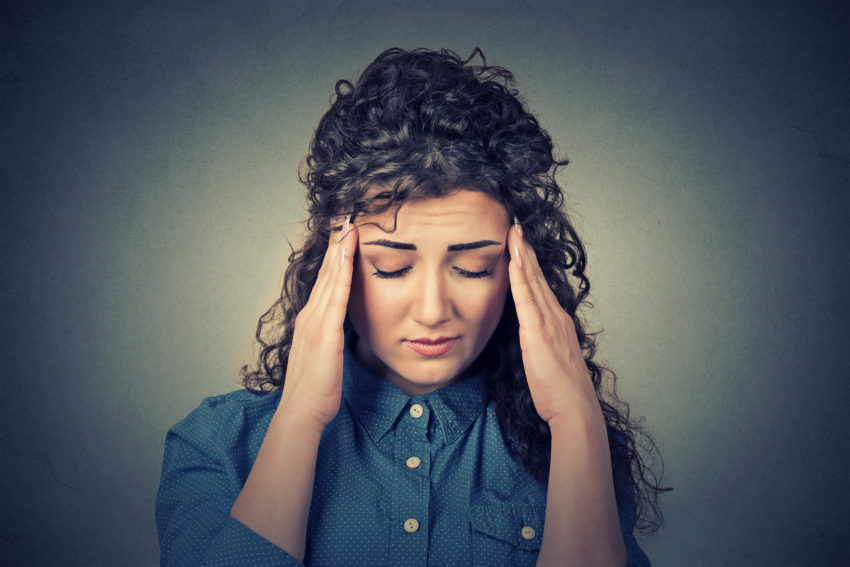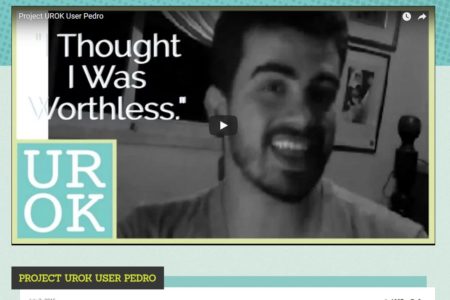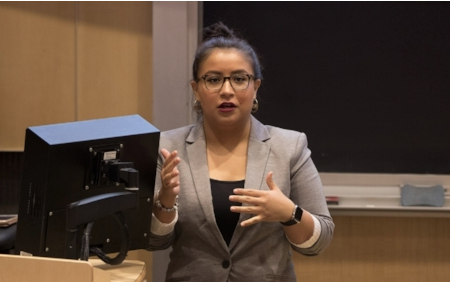
Share On Social!
What I if I told you there was an Internet community for Latino and all teens to tell their stories and empower other youth who are battling depression or anxiety?
Well, it exists, and that’s Project UROK—”You Are Okay” or “You Rock”—is all about!
What is Project UROK?
Project UROK, a nonprofit created by writer/comedian Jenny Jaffe in 2014 and now part of the Child Mind Institute, aims to help youth and reduce the stigma around mental health.
On the program’s website, teens can register for a free, anonymous, safe account.

Then they can comment on and favorite videos, from comedy sketches to informational videos to podcasts and scripted web series, and access resources for dealing with abuse, suicidal thoughts, alcohol and drug abuse, etc.
They can even make their own videos, all with the purpose to battle mental illness.
“Our mission is to create funny, meaningful videos for teenagers struggling with mental health issues, made by people who have been there before,” according to the site. “[This content in combination with user generated content] will provide not only practical assistance, but also a sense of belonging, a sense of comfort, and a sense of hope.
Why is This Important to Latinos?
Latino youth suffer disproportionately from mental health issues compared to their peers.
In fact, 22% of Latino youth have depressive symptoms, which is higher than any other group besides Native American youth, according to a Salud America! research review.
That is why we’re excited to see Project UROK spotlight Latinos for Hispanic Heritage Month.
The program is profiling advocates and organizations that support Latinx mental health. This helps raise awareness of the unique barriers to mental health care within the Latinx community, and provides practical tips and tools for teens and young adults.
Project UROK profiled our own Salud America! Director Dr. Amelie G. Ramirez.
“Seek help and resources. Talk to your parents, teachers, someone in your community that you trust that can help guide you,” Dr. Ramirez said in the profile. “Also, be aware of the impact of social media.”
Find these profiles on @ProjectUROK on Twitter or on their blog.
Project UROK Team
Jenny Jaffe, Project UROK founder and a youth advisor with the Child Mind Institute, was diagnosed with Obsessive Compulsive Disorder, Generalized Anxiety Disorder and Panic Disorder when she was 10.
Jenny created Project UROK to provide the resource she wished she had.
The program team is diverse and very passionate about their work.
For example, Dior Vargas serves as outreach coordinator for UROK partnerships. She also works with clinicians on programs across New York City.

Dior is a Latina feminist mental health activist, former volunteer crisis counselor for CrisisTextLine, and co-facilitator for a young adult support group.
Most importantly, UROK acknowledges that it is imperative to have diverse content to raise awareness for all racial and ethnic groups including the LGBT community. Dior, founder of the People of Color & Mental Illness Photo Project, is helping Project UROK diversify its videos and supportive content to feature more Latinos and other minority groups who’s mental health is impacted by their color, gender, or social status.
“As someone who lives with depression and anxiety, I know how it is to feel like you’re the only one going through this and that there is something wrong with you,” Dior said in her profile. “But that’s not the case. Having these meaningful, thoughtful videos at one’s disposal can be a lifesaver for some, and a source of hope for most.”
Learn more about the team here.
You Can Spread the Health
Mental Illness is a growing issue in today’s world. Your help in sharing resources like Project UROK can make a big impact in someone’s life.
Visit Project UROK’s YouTube channel to learn more about mental health and how to help.
Explore More:
Mental HealthBy The Numbers
22
percent
of Latino youth have depressive symptoms, more than any other group besides Native American youth




I know this is a two year old article, but Bias is another reason why some Hispanic people think about or attempt suicide. I’m actually part Filipino, German and English and I ended up looking stereotypically Hispanic and my surname is Spanish due to my Filipino side since the Spanish colonized the Philippines. I’m a woman though and I’ve thought about it for a number of reasons involving my health from a rare disorder that caused learning issues and also I have obvious cancer symptoms Ive tried getting help with. I’ve also been treated poorly and sometimes in very scary situations because of obvious Bias and Prejudice due to my appearance. I’m just saying Bias against people who are Hispanic and “look Hispanic” is a real thing. I apologize if it was in this article but I didn’t notice it, But I do apologize if its in there. I just think it needs to be addressed more. Thank You